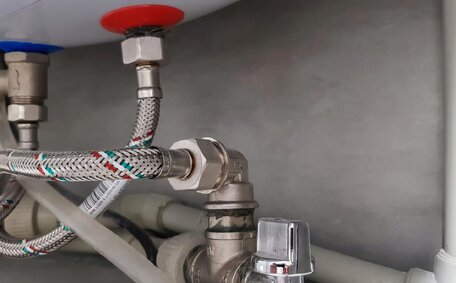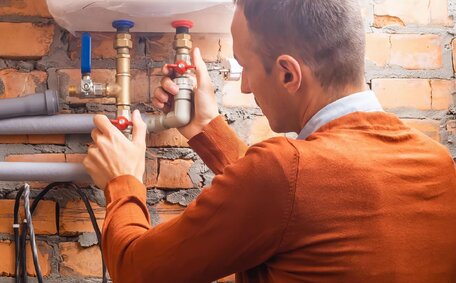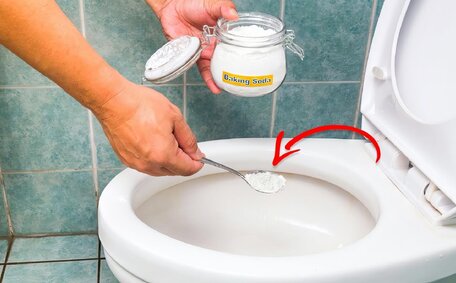Introduction: Signs Your Hot Water is Failing
A dependable hot water system is essential for routine tasks such as bathing, cleaning, and laundry. Dysfunction in your hot water system can significantly disrupt your daily life. Common signs your system may be on the brink of failure include:
- Unstable water temperatures
- Discoloured or cloudy water
- Strange noises from the water heater
- Complete lack of hot water
Water heating typically makes up approximately 23% of an Australian household’s energy expense. Preventative maintenance and timely repairs can optimise efficiency. If you encounter these issues, it’s advised to seek immediate help from a licensed plumber to service your hot water system.
Immediate Actions for No Hot Water Issues
If you suddenly lose all hot water, first determine whether the issue is specific to hot water or if you have no water flow at all. Try a few different faucets. If cold water flows but no hot water comes, focus troubleshooting on your hot water system.
For electric water heaters, locate the power switch or circuit breaker connected to the unit and turn it off for safety before investigating further. On gas models, carefully turn off the gas control valve to the 'off’ position. Ensure that all your gas appliances are turned off.
Ensure the pilot light is lit on gas heaters. If not, refer to manufacturer guidelines for more information on relighting, or contact a professional.
Investigate for leaks, unusual noises, or smells that could signal larger issues.
Examine your home’s water pressure first, regardless of the heater type. A malfunctioning pressure relief valve or diminished supply pressure can impede hot water delivery. Contact your utility company if you suspect supply issues causing reduced flow or no water comes out.
Try running the hot tap for a few minutes to clear any trapped air bubbles and make sure water comes out properly. If that doesn’t restore hot water, contact a licenced plumber immediately to diagnose and repair your system before problems escalate.
Troubleshooting Electric Water Heaters
Electric water heater issues usually originate from power supply disruptions, thermostat issues or malfunctioning heating elements. Follow this checklist to diagnose and address common electric water heater failures:
- Check the power source and reset the circuit breaker if tripped. Ensure fuses are intact and that the power switch is turned on.
- Inspect the high temperature limit switch near the thermostat. Press the reset button if triggered.
- Test the upper and lower heating elements using a multimeter. Refer to voltage specifications. Replace faulty elements.
- Unplug power and carefully remove the thermostat to check calibration. Replace the thermostat if inaccurate or damaged.
- Confirm water pressure and check valves to rule out supply issues as the cause of hot water interruptions.
- Drain the tank annually to prevent sediment accumulation that can affect heating efficiency.
- Inspect anode rods regularly and replace corroded rods reducing tank life.
If you’ve checked all components and hot water delivery is still unreliable, contact a licenced electrician to service your water heater before problems escalate.
Diagnosing Gas Water Heater Problems
Gas water heaters might experience issues such as pilot light outages, defective gas valves, leaks, and combustion chamber malfunctions. Follow this checklist when troubleshooting gas water heater issues:
- If the pilot light goes out, refer to relighting instructions or contact a professional.
- Check all gas valves are open and allowing proper gas flow.
- Inspect supply lines and fittings for damage allowing leaks. Tighten fittings if needed.
- If a sulfuric or rotten egg smell is detected, shut off your gas and leave the area immediately until a professional deems it safe.
- Evaluate the thermocouple function using a multimeter. Replace if giving inaccurate readings.
- Examine the burner assembly for obstructions that could prevent ignition.
- Check the flue for blockages preventing proper ventilation.
- Drain and flush mineral deposits from the tank annually.
- Replace the anode rod if corroded, reducing tank life.
If you’ve tried these troubleshooting steps and hot water is still a problem, contact a licenced gas fitter to service your system before issues escalate. Never attempt repairs beyond your skill level on gas appliances due to serious safety risks.
General Maintenance to Prevent Cold Water
Keep water temperatures safely below 50°C to prevent scalding risks. Weekly flushing of the system can mitigate this risk.
Also, stagnating water between 25°C and 50°C can foster Legionella bacterial proliferation.
Service residential heaters every 3-5 years and perform more frequent checks on commercial units, ideally every 72 hours, for optimal functioning. Preventative maintenance saves money over costly repairs down the track.
When to Call a Professional Plumber
Dealing with hot water issues can quickly become frustrating and even dangerous in some scenarios. Recognising when to call in a professional plumber is crucial. Contact North Epping Plumbing for situations like:
- You smell gas or suspect a gas leak. Shut off the gas valve and contact the fire department immediately, then call us to inspect your gas lines for damage.
- The high-temp safety cutoff switch on your electric water heater trips. Attempting to override this failsafe could result in scalding or other serious injuries.
- You have no hot water at all from any faucet. A widespread loss of hot water signifies a problem needs professional diagnosis and repair.
- Discoloured water is coming from taps, indicating rust, sediment buildup or corrosion inside the tank.
- Complex electrical issues arise that you don’t feel safe attempting to fix yourself.
- Any problems arise after recent plumbing repairs done by an unlicensed handyman.
- Your water heater is over 10 years old, as older units are prone to failure without warning.
Our licenced, bonded and insured plumbers have the expertise to quickly diagnose issues and can fix with necessary repairs or replacements. We handle all permits and paperwork as well. Don’t hesitate to call our 24/7 emergency hotline at 1300 349 338 if you experience loss of hot water.
Replacement vs Repair Cost Considerations
When your water heater stops delivering hot water reliably, you must decide whether to repair or replace the unit. Consider the following factors when weighing up your options:
Expected Lifespan
The average lifespan of a water heater is 8-12 years. After this period, the likelihood of malfunctions increases and sourcing spare parts becomes challenging. If your system is over 10 years old, replacement may be the better value.
Upfront Cost vs Long-Term Savings
While a new efficient unit has a high upfront cost, it can provide energy savings of up to 30% over an older model. Take into account rising energy bills when calculating cost effectiveness.
Fault Diagnosis Expense
Diagnosing unknown problems on older heaters can take time and money. If the expenses for diagnosing faults surpass half the cost of a new system, replacement may be the better option.
Extent of Damage
For minor issues like heating element or thermostat failure, repairing the existing system is usually preferable. But for corrosion, leaks or other major tank damage, replacement is likely your best bet.
When large, unexpected repair bills start accumulating, a new system often gives better return on investment. For guidance tailoring cost analysis to your situation, contact our team at North Epping Plumbing on 1300 349 338.
Conclusion and Next Steps
Reliable hot water is crucial for day-to-day home activities.
If you experience issues like fluctuating temperatures or a complete loss of hot water, it’s important to address the problem promptly. Thoroughly troubleshoot your electric or gas system, paying close attention to components such as heating elements, thermostats, and pilot lights.
While minor repairs may restore functionality, consider replacing aged water heaters over 10 years old, as breakdowns become more likely over time. Additionally, newer models with better energy efficiency can lead to long-term savings. Weigh up repair expenses against replacement prices and energy savings when deciding next steps.
To prevent problems proactively, perform regular maintenance like flushing sediment and replacing anode rods. Maintain safe temperature settings and flush stagnant system water weekly.
For further help with water heater issues, reach out to the licensed professionals at North Epping Plumbing. contact our around-the-clock support at 1300 349 338 or email [email protected] to diagnose issues and make necessary repairs or replacements to restore reliable hot water supply in your home.






